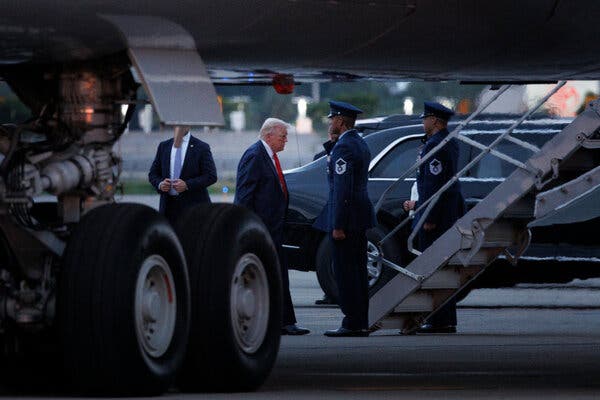US President Donald Trump has expressed interest in the official visit of his Salvadoran counterpart Nayib Bukele to the White House as part of the growing co-operation between the two governments in the areas of security, migration and the fight against transnational crime.
El Salvador’s presidential house said on Saturday that Bukele landed at Joint Base Andrews Military Base in Washington, D.C., to begin his official visit to the United States.
“Next Monday, April 14, the President will visit the White House where he will meet with his counterpart Donald Trump,” the El Salvador government announced.
On the Truth Social platform, Trump said, “Looking forward to meeting President Bukele of El Salvador on Monday! Our countries are working closely together to eliminate terrorist organisations and build a future of prosperity.”
In addition, he noted that “President Bukele has generously taken under his tutelage some of the world’s worst foreign enemies, particularly the US. These barbarians are now under the exclusive protection of El Salvador, a proud and sovereign nation, and their future depends on President Bukele and his government. Never again will they threaten our citizens!”
The bond between the two leaders was strengthened after a series of agreements that put El Salvador in a key role in outsourcing US migration policy.
One of the pillars of this co-operation has been the deportation to El Salvador of hundreds of migrants accused of belonging to criminal organisations such as Tren de Aragua and MS-13, both of which the Trump administration has classified as Foreign Terrorist Organisations.
The recent operation involved the transfer of 17 alleged criminals “extremely dangerous,” among them six accused of crimes against children, who were transferred to the Terrorist Confinement Centre (CECOT) in El Salvador. Bukele described the operation as “another step in the fight against terrorism and organised crime.”
According to CBS News, the White House is considering a formal migration agreement under the “Safe Third Country” model, which would allow the US to deport third-country asylum applicants to El Salvador, especially Venezuelans whose applications are rejected. The mechanism, which was previously explored unsuccessfully during Trump’s first term, is seeking renewal with a more aggressive approach and direct economic compensation to El Salvador’s government.
Bukele confirmed that his country is receiving payments for the detainees, as part of a co-operation that includes joint action between the military forces of both countries.
US Secretary of State Marco Rubio, during a visit to the Central American country, praised the Salvadoran model of crime deterrence. “These criminals will no longer terrorise our communities and citizens,” he declared.
